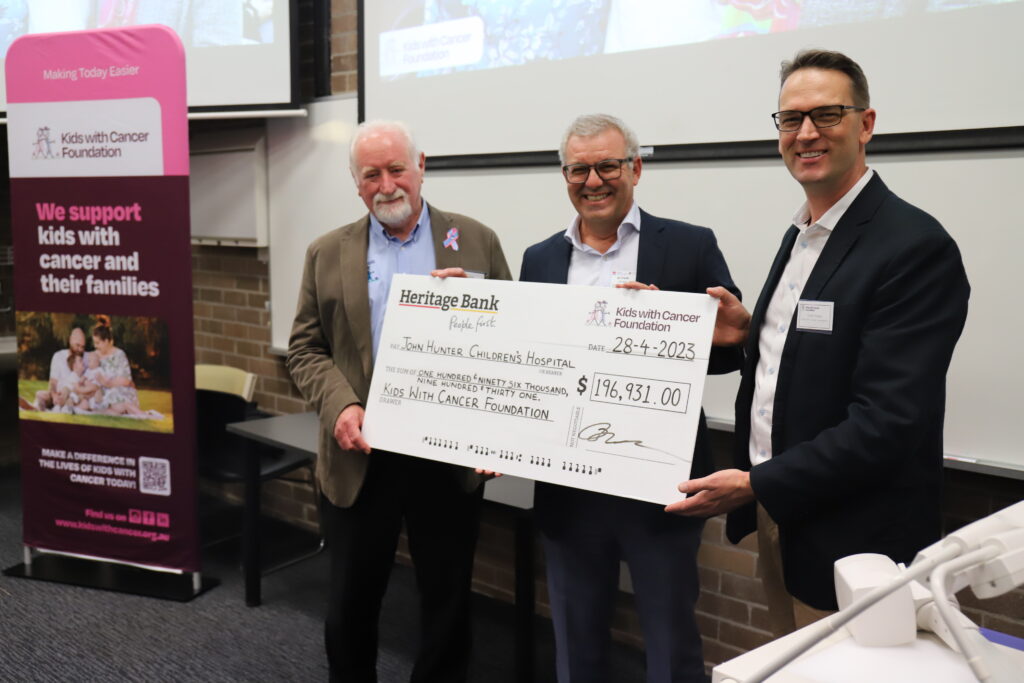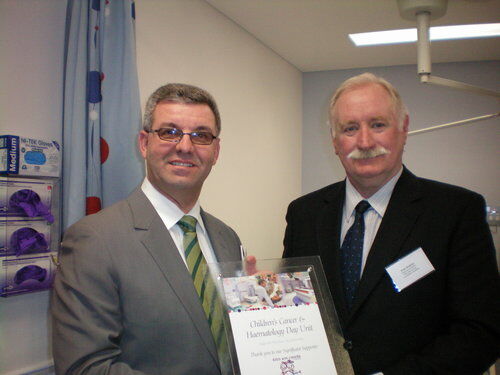John Hunter Children’s Hospital
$1,452,946 in Lifetime funding since 2000
Kids with Cancer Foundation has been providing funding to John Hunter’s new oncology unit since 2000.


Hospital Funding Highlights
“On behalf of the children of the Hunter New England region that receive cancer and haematology services at the John Hunter Children’s Hospital please accept our gratitude and sincere appreciation for the wonderful contribution of Kids With Cancer in helping us construct our new Oncology Day Unit.
The Kids with Cancer Foundation has played a significant role in bringing this project to fruition. Now, we can ensure that our patients have access to the highest quality of care and we know we have the potential to enhance and expand that care to continue delivering best practice in oncological care for children and young people.” Dr. Frank Alvaro
Hospital funding over the years
A timeline of our contributions to John Hunter Children's Hospital
$92,919
- Data Projector
- Oncology Pharmacist (ongoing)
$27,950
- Oncology Ward improvements that including Filtration System & Air Conditioning for Oncology Rooms
$50,784
- Ward J1 Refurbishment
$71,322
- Half Time Nurse Educator
- Oncology Pharmacist
$28,118
- Data Manager – Increase Position from 0.5x to 0.8x
- Photocopier Dr Alvaro
$101,852
- Late Effects Coordinator (ongoing)
Read more …
$89,915
- Clinical Nurse Specialist
Read more …
$183,744
- Late Effects Coordinator
- Two-year funding of an Oncology Fellow
$556,339
- Oncology Social Worker
- Clinical Nurse Consultant
- Cooking Program
A growing number of children and adolescents that have had treatment for a childhood cancer are now surviving their disease. These childhood cancer survivors require ongoing and systematic monitoring, early detection and timely intervention of a variety of potential “late effects” from their chemotherapy, radiotherapy, and surgery or combined therapies. The late effects coordinator is responsible for coordinating clinics that educate, screen, monitor and manage childhood cancer survivors 5 years from completion of treatment to ensure the best possible quality of life for each individual. Patients receive a Patient Treatment Summary that summarises their individual treatment and recommendations and health promotion information sheets to keep them in the best health possible.
In conjunction with their primary oncologist, we are determining which survivor needs face to face appointments and which survivors can maintain contact with the late effects clinic via a standardised telephone consult, usually those at low risk of any late effects.
Lyndal Moore is the Late Effects Coordinator at John Hunter Children’s Hospital Newcastle and commenced this role in 2008 with the support of the Kids with Cancer Foundation which continues to provide this essential service to the childhood cancer survivors within the Hunter New England Local Health District.
In 2008 we agreed to fund the position of the Late Effects Co-Ordinator at John Hunter Children’s Hospital for 3 years and we were pleased to be asked again in 2015 to fund the Clinical Nurse Consultant for a further 3 years.
The Foundation was pleased to receive a certificate of recognition in July 2008 from Senior Staff Specialist Dr. Frank Alvaro, after donating $250,000.


